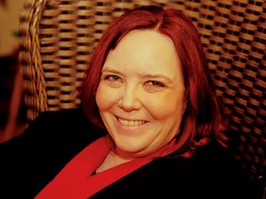by thia james, saskatoon starphoenix
allyssa sanderson says the sparks have returned to her son’s eyes, and everyone in his life has noticed.eight-year-old ben sanderson was diagnosed at the age of two with a severe form of epilepsy, lennox-gasteut syndrome. he was one of seven children under the age of 10 to complete a trial involving cannabis-related treatment to control seizures, and his quality of life has improved, his mother said.ben is developmentally between eight and 10 months old and has always had small gains, which she calls “inch-stones,” including eating meals or self-feeding. since the cannabis oil treatment, he’s had more gains, she said. for example, when he hears the sound of water, he crawls toward the bathroom, wanting to take a bath.“he understands things which he didn’t understand before … before cannabis, he was just like this shell and his eyes were glossy. he was there, but it always seemed like he was in seizure activity. he was doing something to stimulate himself, he was chewing on his hands, he wasn’t looking at people in the eyes. and now he is focused, he is engaged, he’s actually making connections with kids that he goes to school and daycares with,” she said.ben could be seizure-free on some days, but on others, he could have more than 100 seizures. he was prescribed four different anti-epileptic medications and had reached the maximum dosage before toxicity; he tried the keto diet and wasn’t a surgery candidate. the last option was steroids, which allyssa said wasn’t an option.she approached dr. richard huntsman, a university of saskatchewan researcher, years ago after hearing about charlotte’s web, a cannabidiol (cbd) product. she said he told her something was in the works and that ben would be a good candidate for it.that something was a study, led by huntsman and involving fellow u of s researcher dr. robert laprairie. it found that in the seven trial patients who completed the study in saskatoon, the daily use of a cannabis herbal extract — 95 per cent cbd (cannabidiol) oil to five per cent thc (tetrahydrocannabinol) — reduced the frequency of their seizures. the findings were published july 3 in the
frontiers in neurology medical journal.huntsman said good data is already available that shows cannabis-based therapies can be effective in controlling seizures in children with refractory (or uncontrolled) epilepsy. however, those studies involve the use of pharmaceutical grade, purified cbd, which is largely inaccessible to families in canada due to high cost and regulatory reasons.there was another group of products, the whole plant extracts. the 1:20 thc:cbd product was available when the study first started five years ago and was health canada approved, coming from a licensed producer. it was also believed that the small amount of thc could have a beneficial effect, although they had to be careful because of concerns about intoxication.laprairie said all of the evidence shows that it’s really the cannabidiol that is the “primary driver” of the anti-seizure effect.huntsman said the challenge has been that doctors have been very reluctant to authorize these therapies for children, because good dosage guidance hasn’t been available and there’s been concern that a small amount of thc would cause intoxication.he reiterated that the data is preliminary and based on the results of the first seven children to complete the study out of 20 who were recruited. he said all of the kids responded to treatment, some more than others, and three became seizure-free. the preliminary data showed an average reduction in seizures of about 75 per cent for the seven participants.as a result of the study, huntsman said the researchers were able to provide a dosage guideline recommendation. over the course of the study, the researchers measured the amount of cbd and thc in the trial patients’ blood as they increased the dosage, and found the thc levels remained low, even at higher dosage levels, he added.“we’re hoping this may open up the availability of these products for these kids.”the saskatchewan-led project was approved by health canada and the u of s’s biomedical ethics board, but got off the ground with funding that came through grants, including from the jim pattison children’s hospital foundation.the trial in saskatoon involved patients with severe forms of epilepsy who were taking prescription anticonvulsants. four patients were between the ages of four and six years; one was between the ages of seven and 10 years and two were between the ages of one and three years. the doses were delivered orally or through a gastrostomy tube and the cannabis oil extract was meant to be an add-on to an existing therapy.all but one of the children continue to take the cannabis oil add-on therapy.the researchers are now working with the canadian childhood cannabinoid clinical trial symposium (c4t) to conduct a larger-scale international study.
tjames@postmedia.com

 4 minute read
4 minute read





